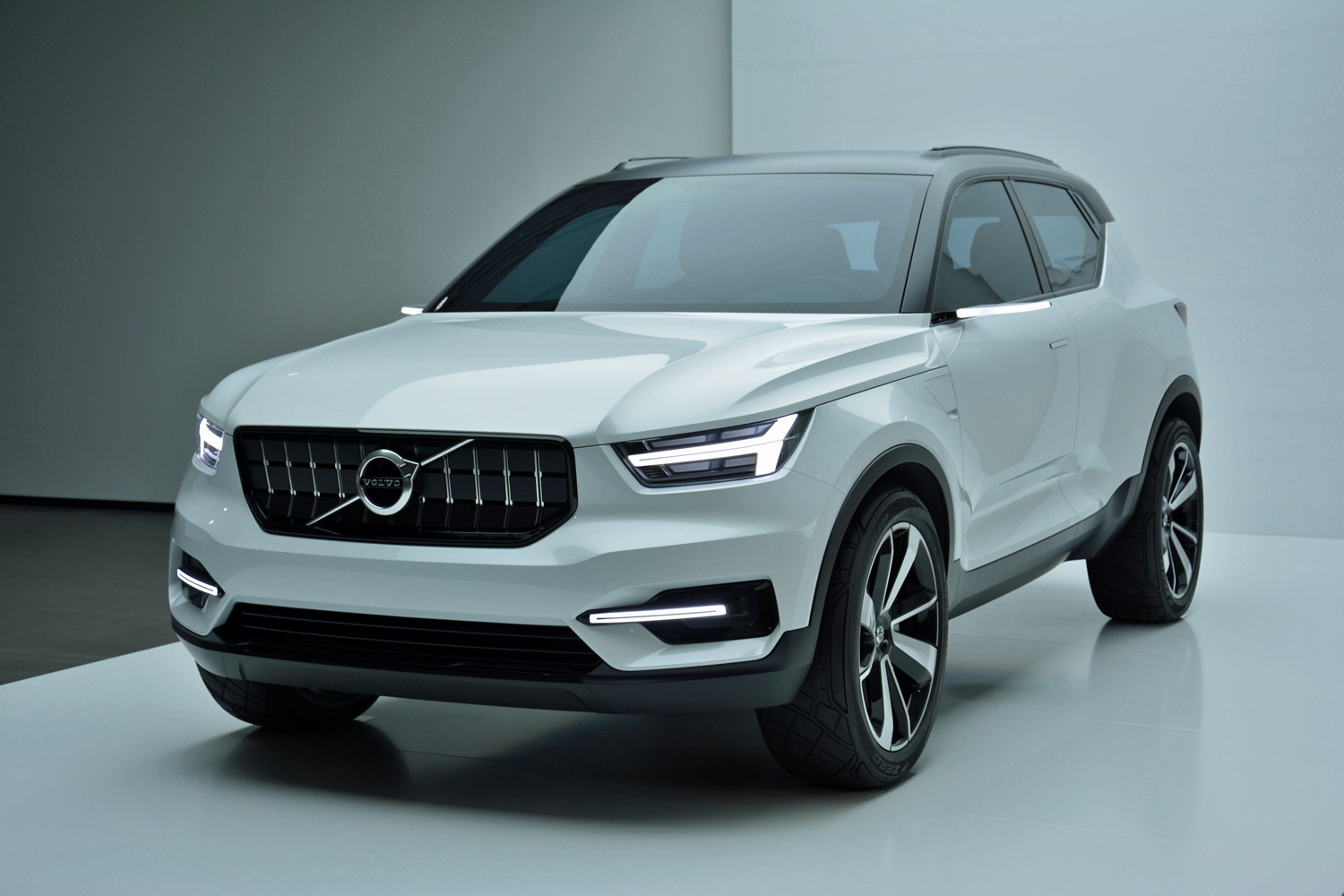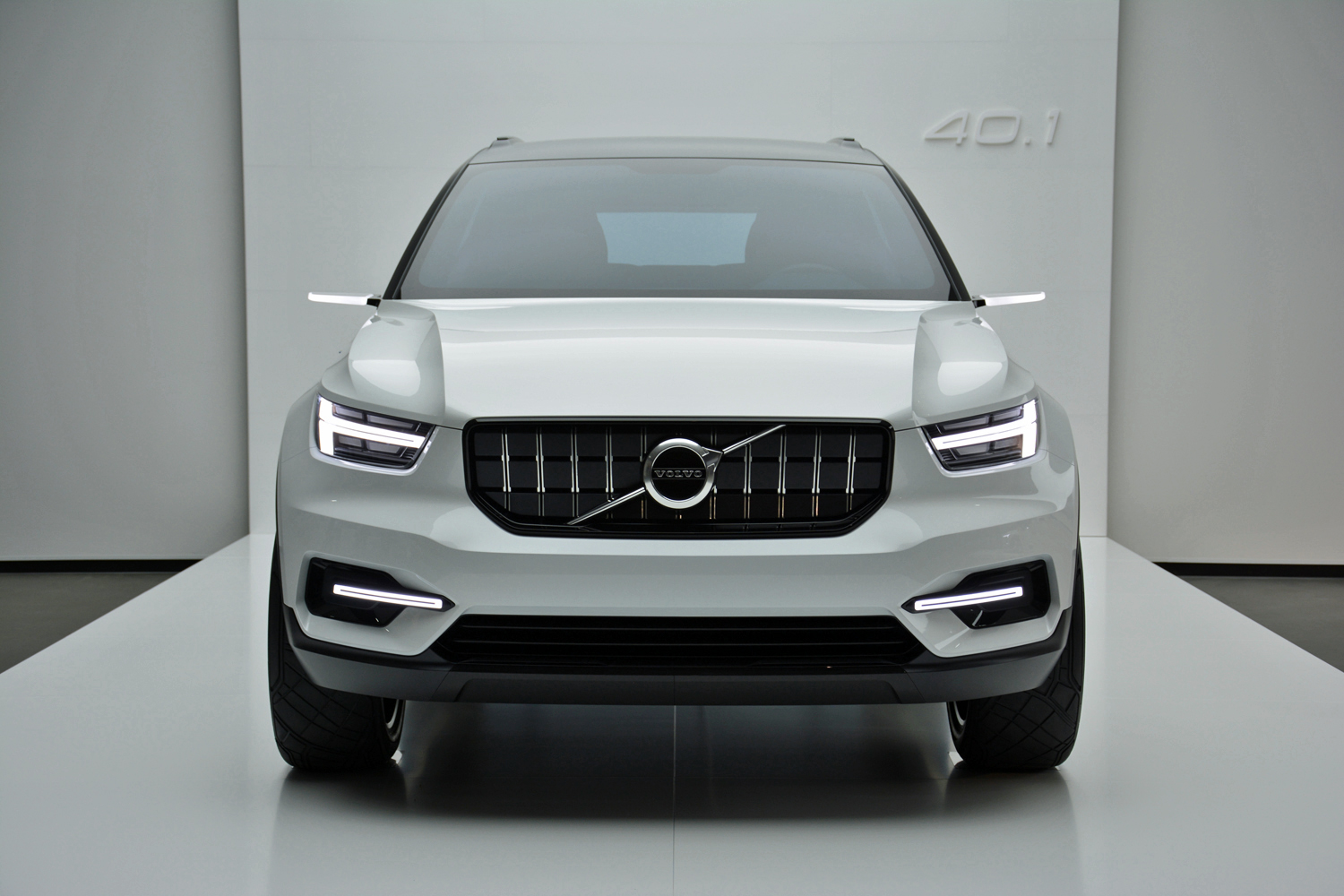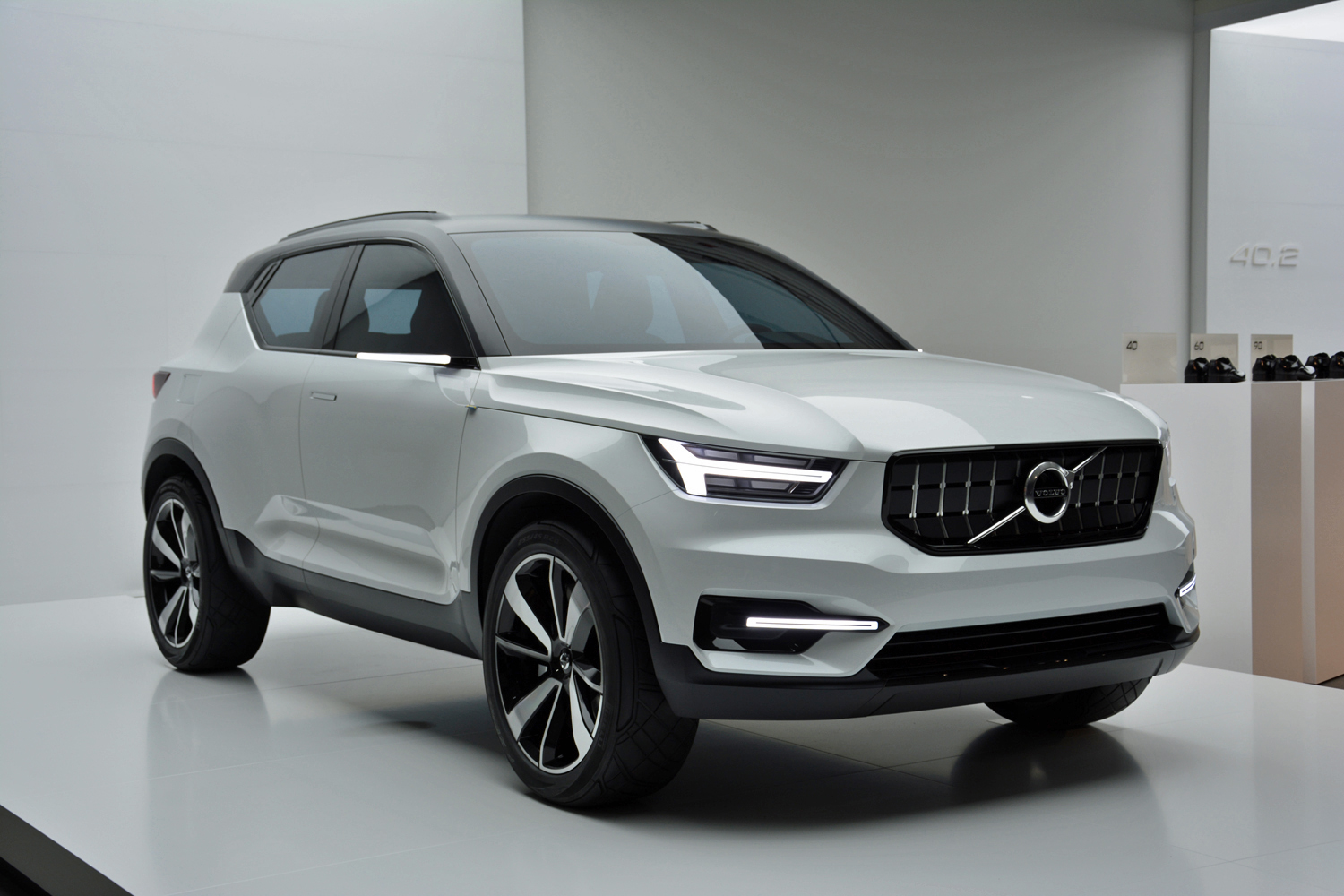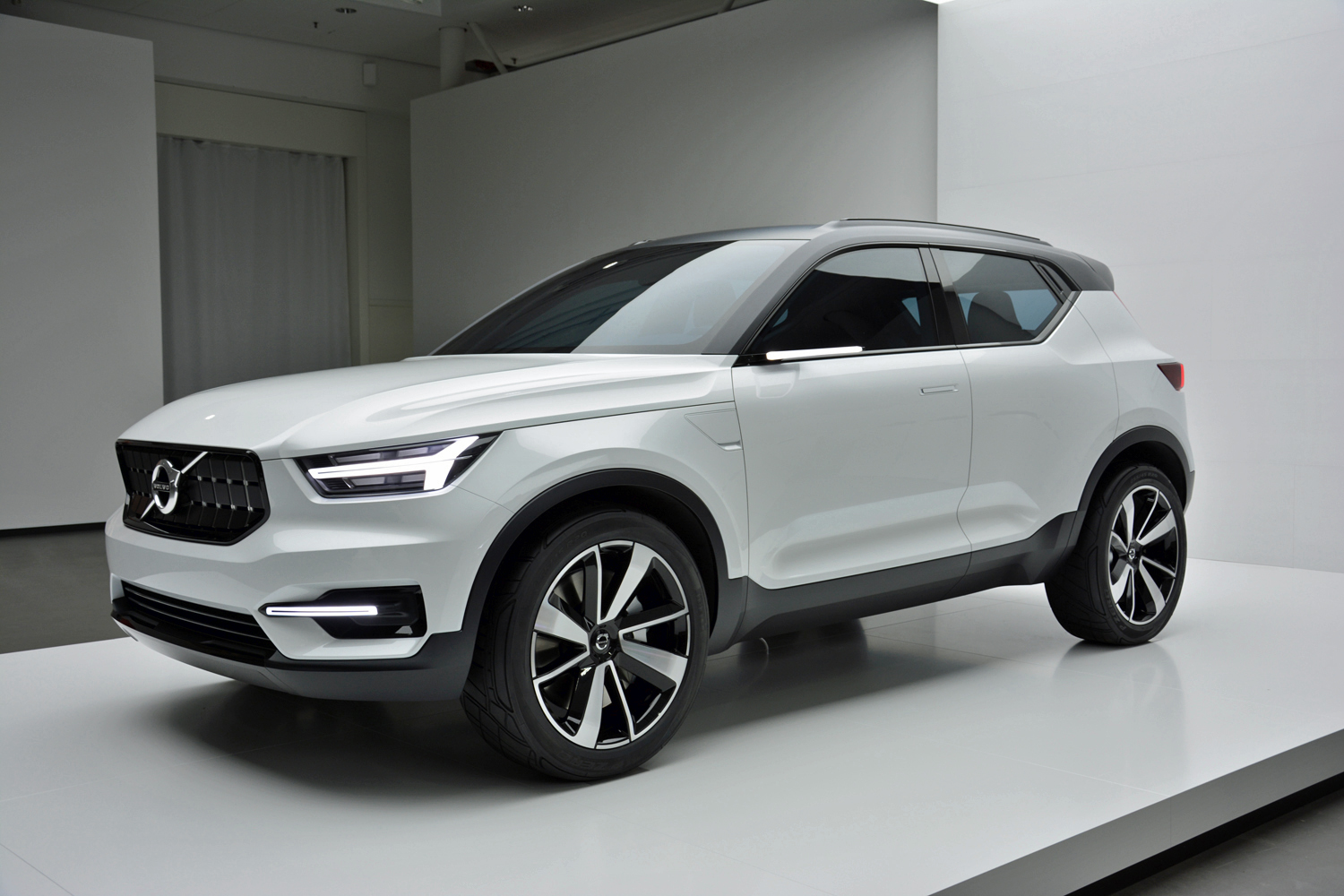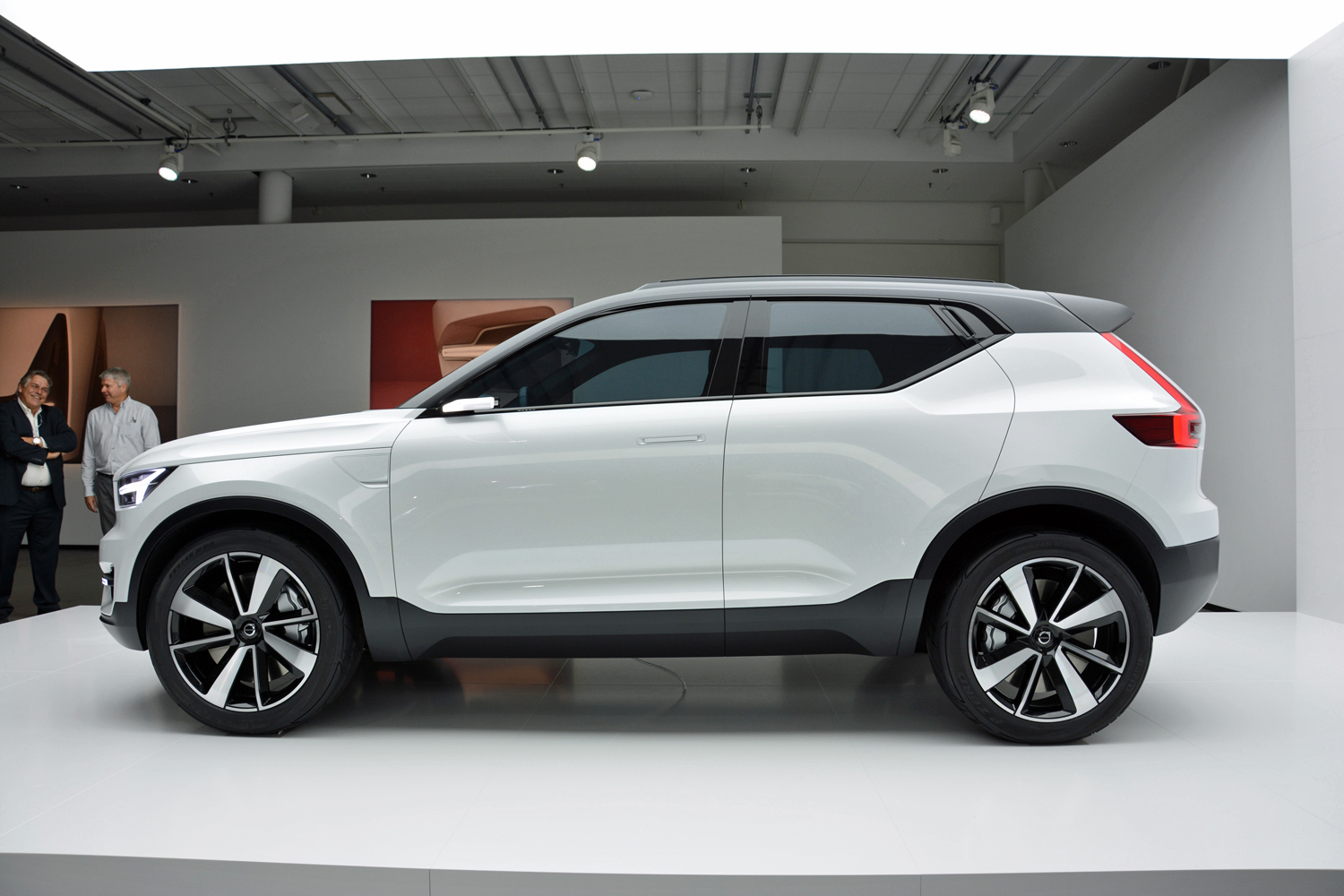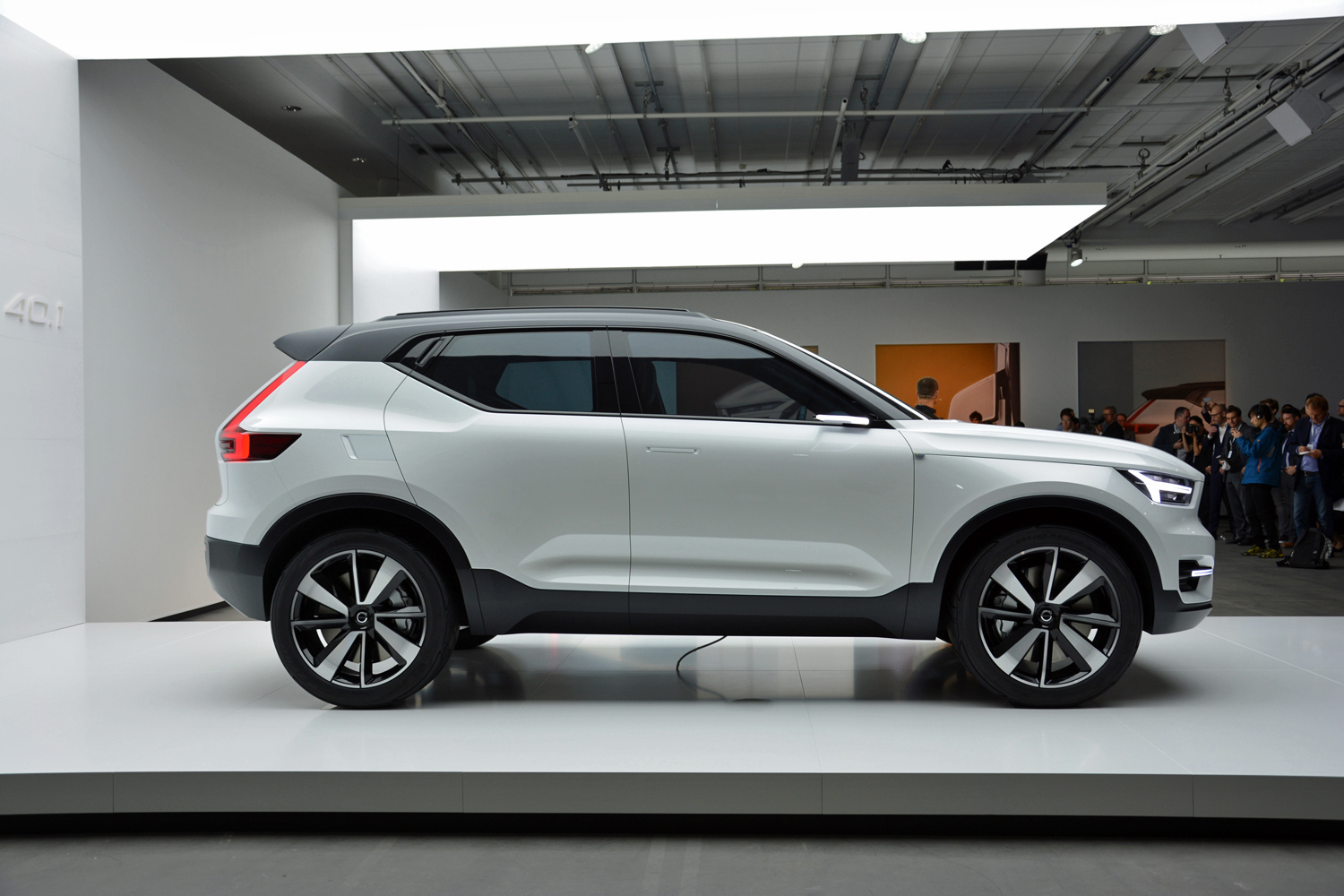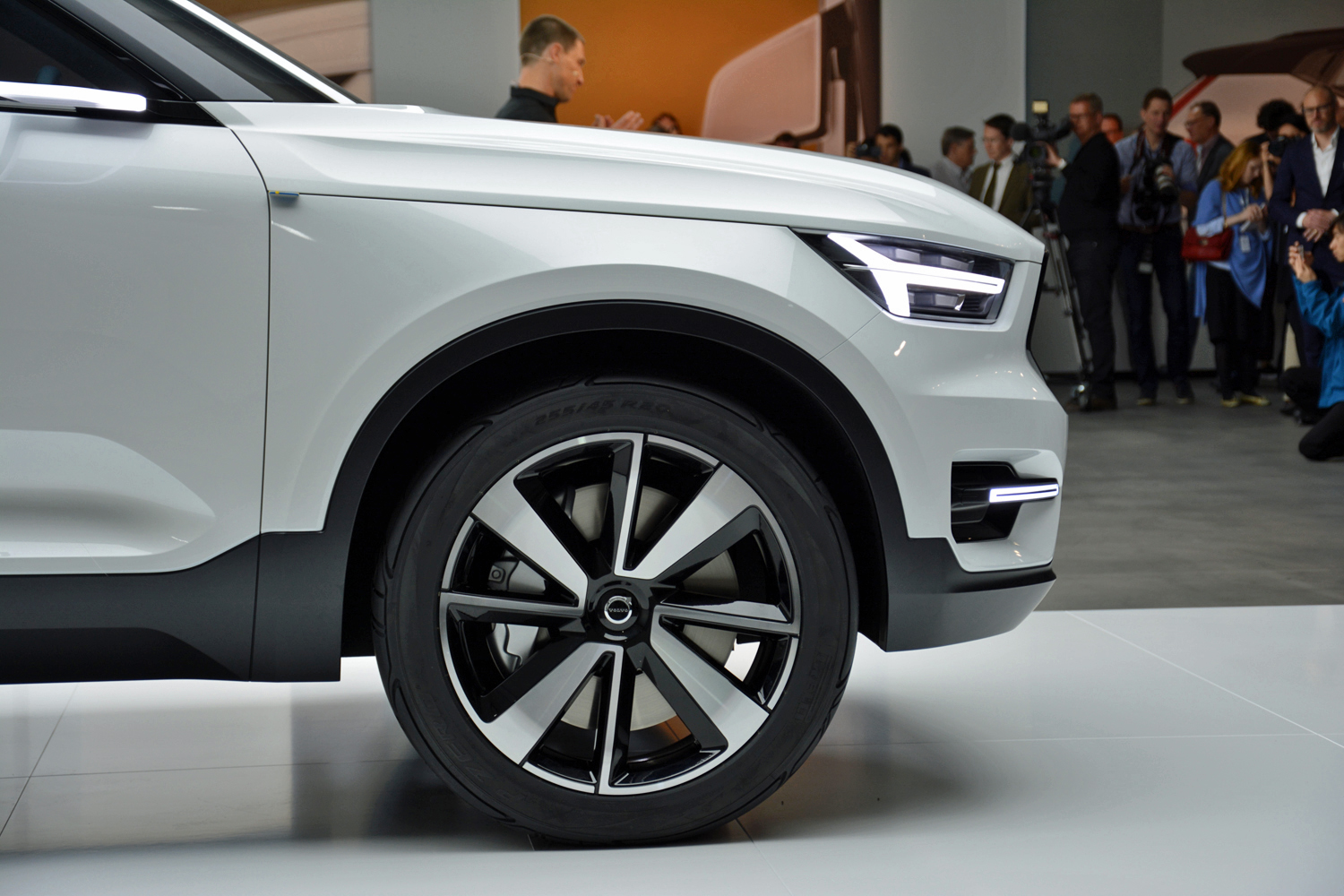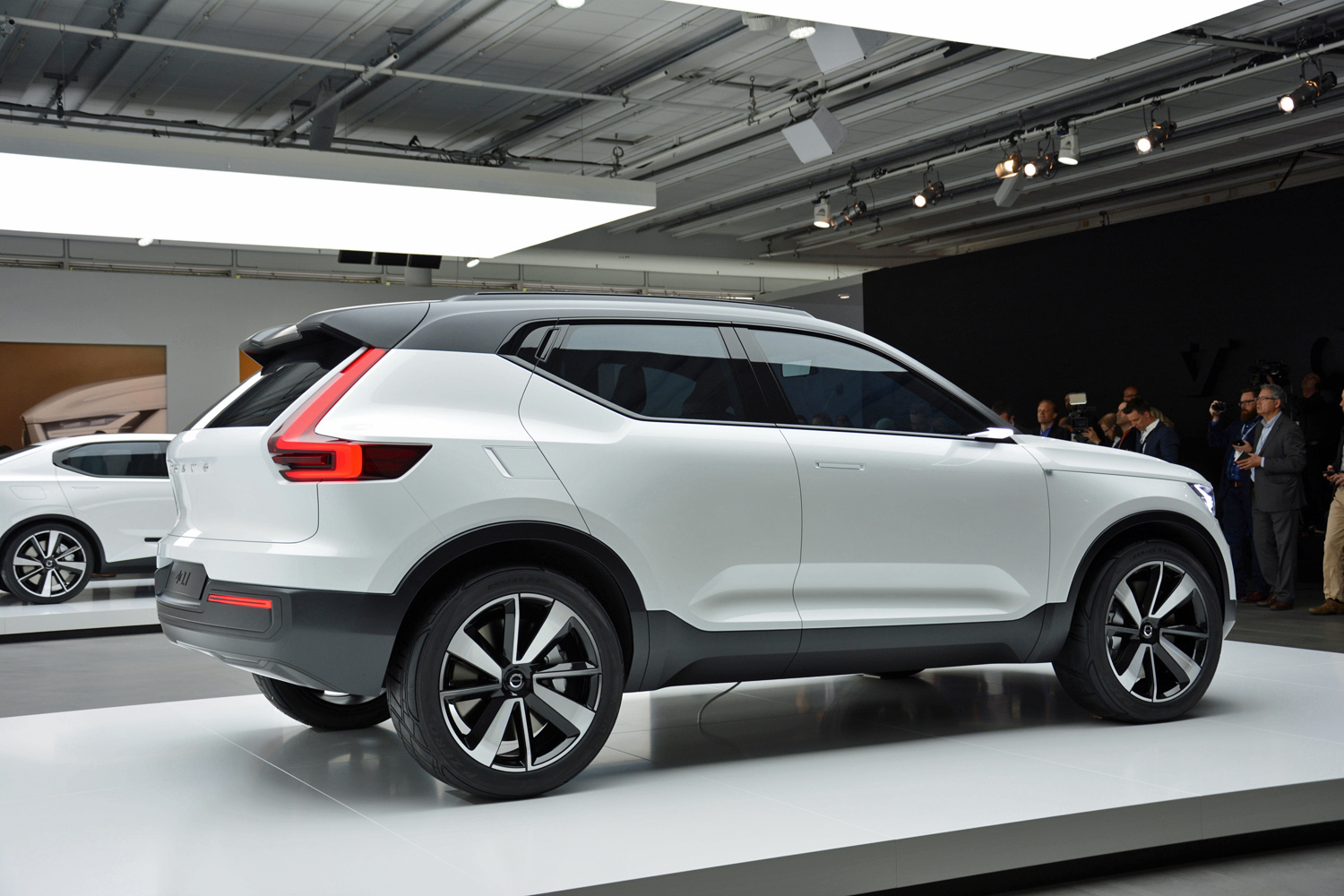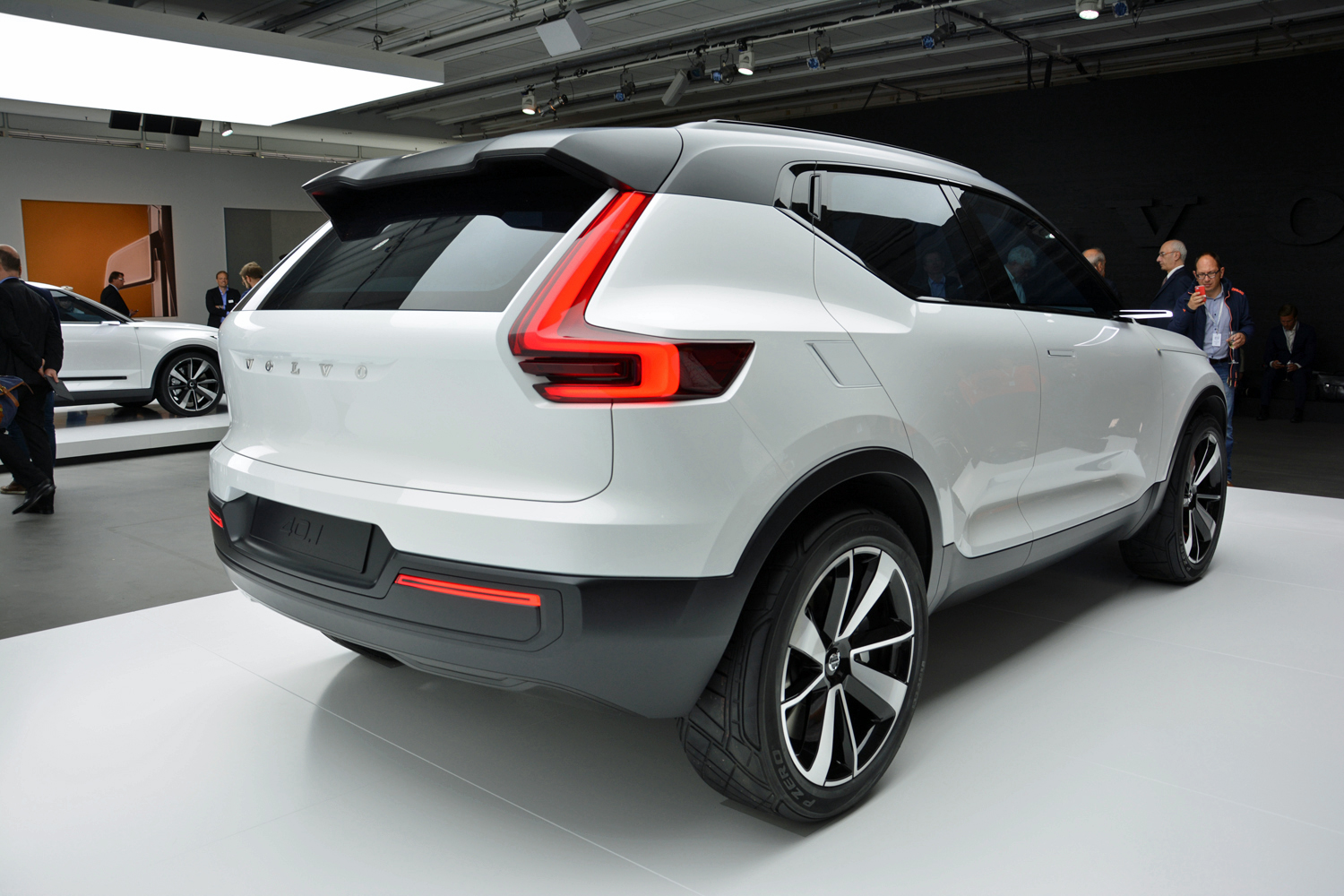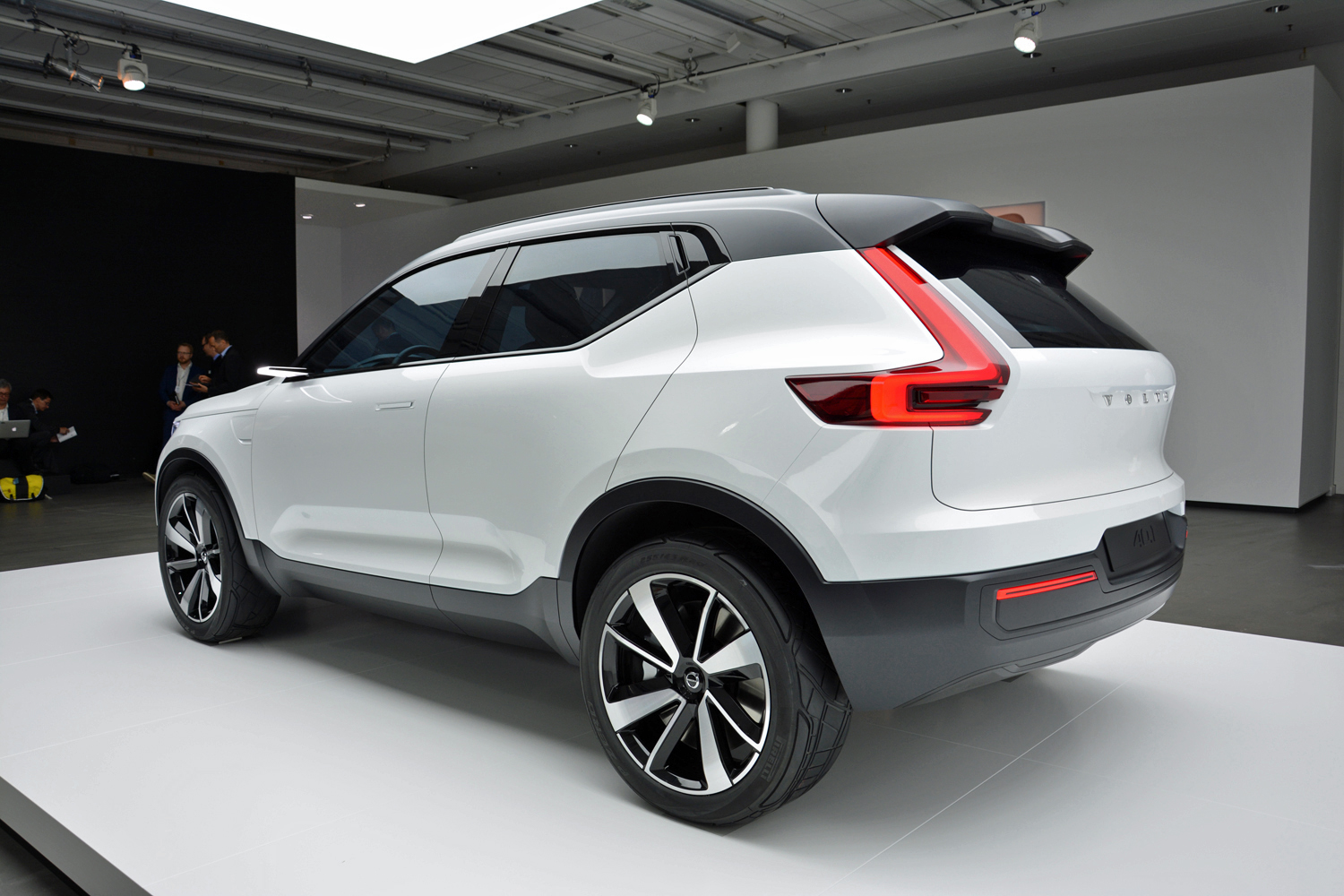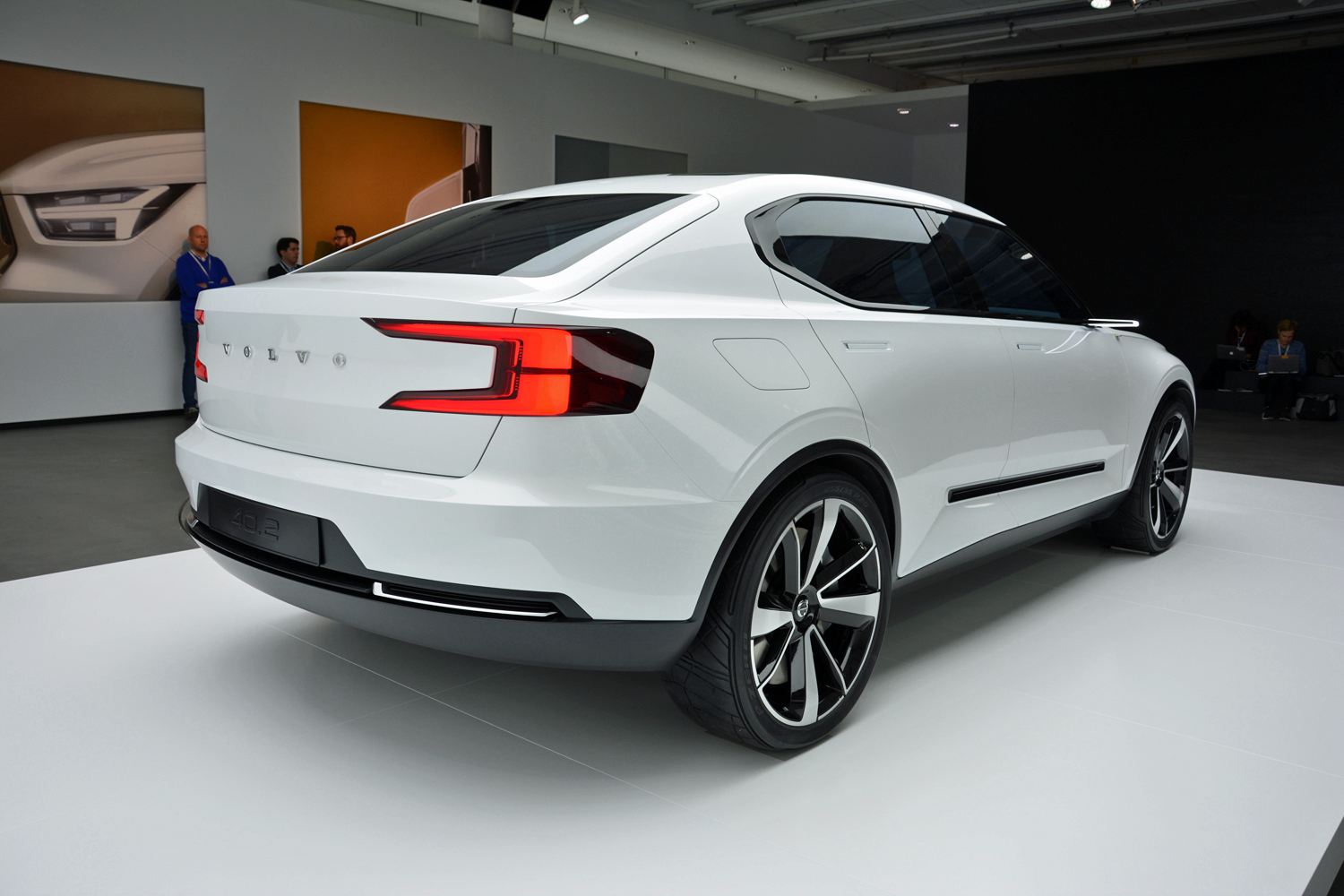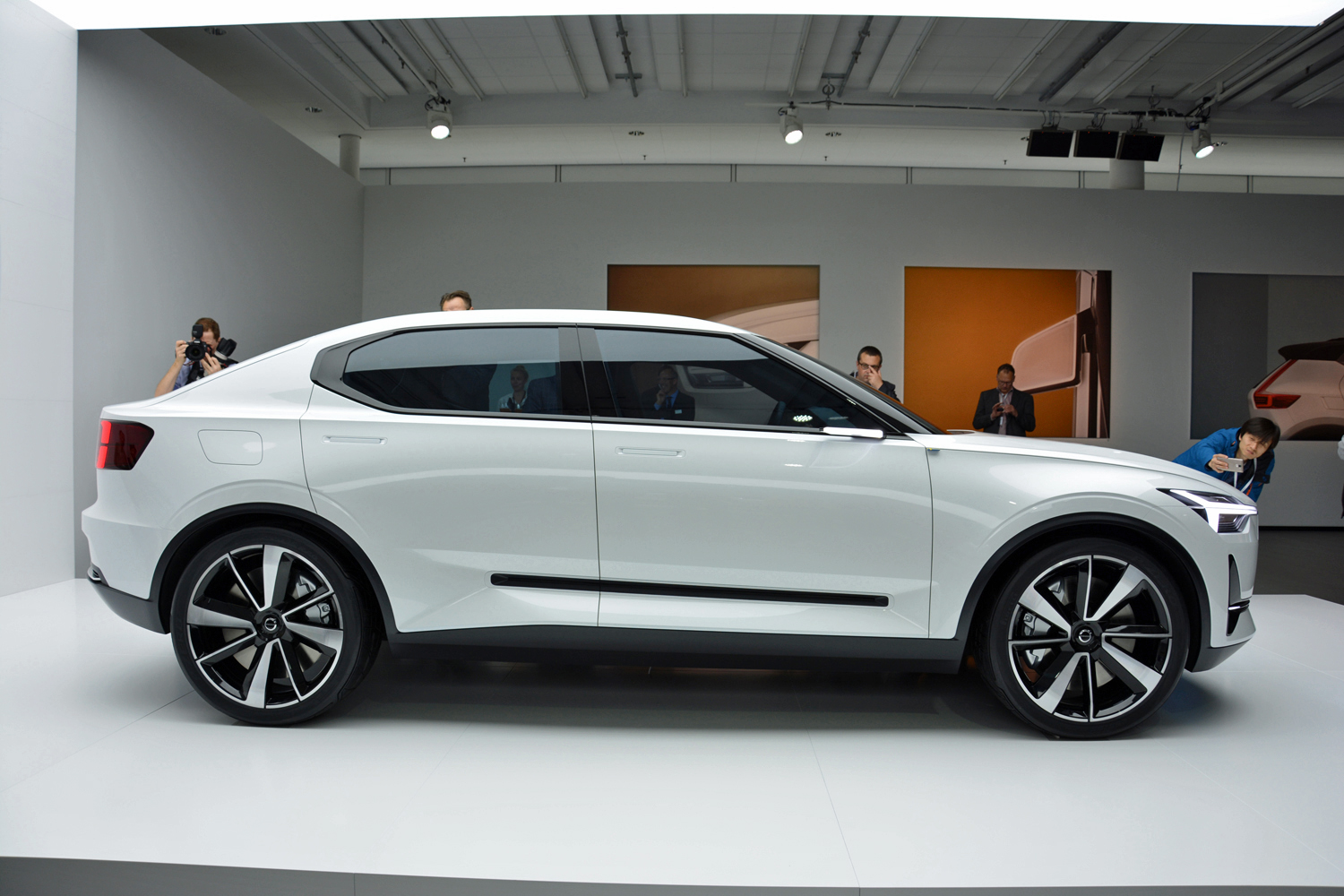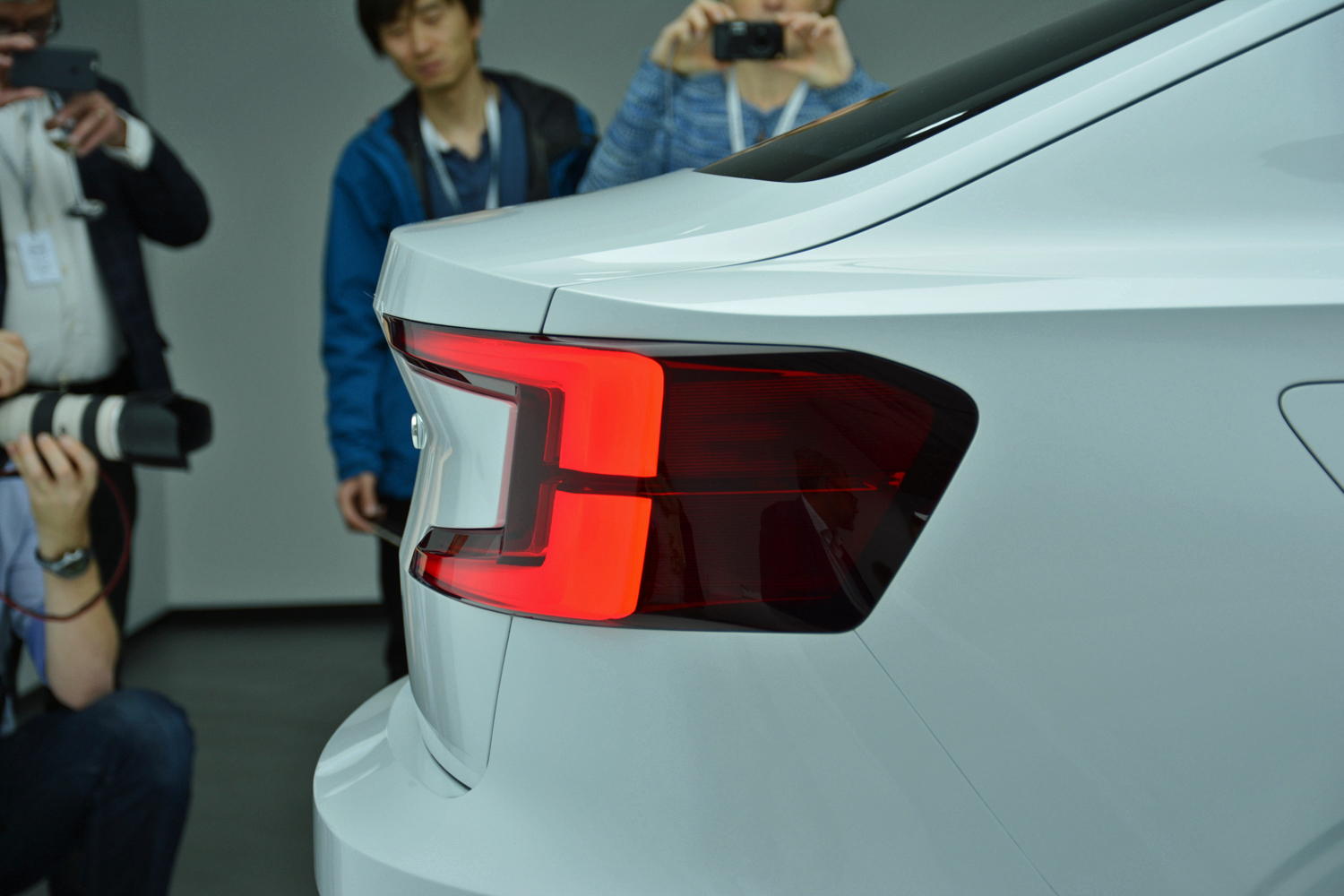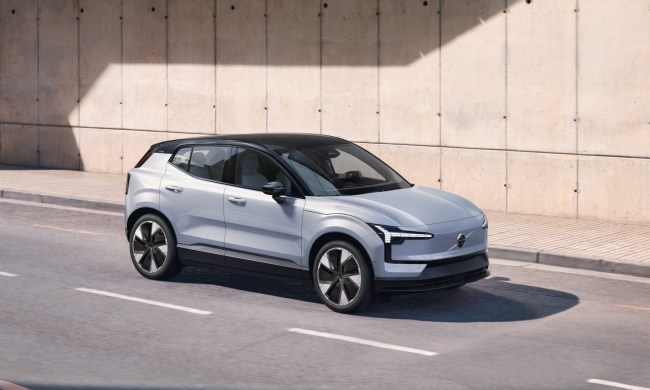Volvo is reinventing itself from the top down. The Swedish carmaker recently introduced the redesigned XC90 crossover and the new S90 sedan and V90 wagon, all based on the Scalable Product Architecture (SPA) platform for large and midsize vehicles. Now Volvo is focusing on the other end of its lineup.
The company previously discussed a Compact Modular Architecture (CMA) platform for smaller cars, but it’s just now providing a hint at what vehicles based on that platform might look like. Say hello to the Concept 40.1 and Concept 40.2, harbingers of Volvo’s small-car future.
Collectively referred to as the “40 Series,” both concepts incorporate the handsome styling of Volvo’s larger, SPA-based cars. Both feature concave grilles and an interpretation of the “Thor’s hammer” headlights from the XC90, S90, and V90. The Concept 40.2 sedan has a more extreme version of the S90’s horizontal taillights, while the Concept 40.1 crossover boasts a nicely raked rear hatch.
Powertrains for the production 40 series cars will include at least one four-cylinder engine, and a T5 “Twin Engine” all-wheel drive plug-in hybrid setup. This includes a turbocharged three-cylinder engine and seven-speed dual-clutch transmission, along with an electric motor. CMA will also form the basis for Volvo’s first production all-electric car, due in 2019.
Other cars based on the CMA platform will go into production in 2017, although it’s unclear if they will be sold in the U.S. Volvo has always had trouble selling compact models here; the last S40 sedan was a dud, and the company didn’t even bother importing the V40 hatchback that replaced it in other markets.
Read more: Volvo’s self-driving cars will make ethical decisions
With the large and small vehicles taken care of, expect Volvo to focus on the middle of its lineup next. Replacements for the current S60, V60, and XC60 will likely use the SPA platform when they arrive over the next few years. Virtually every Volvo model will eventually be based on either SPA or CMA.
